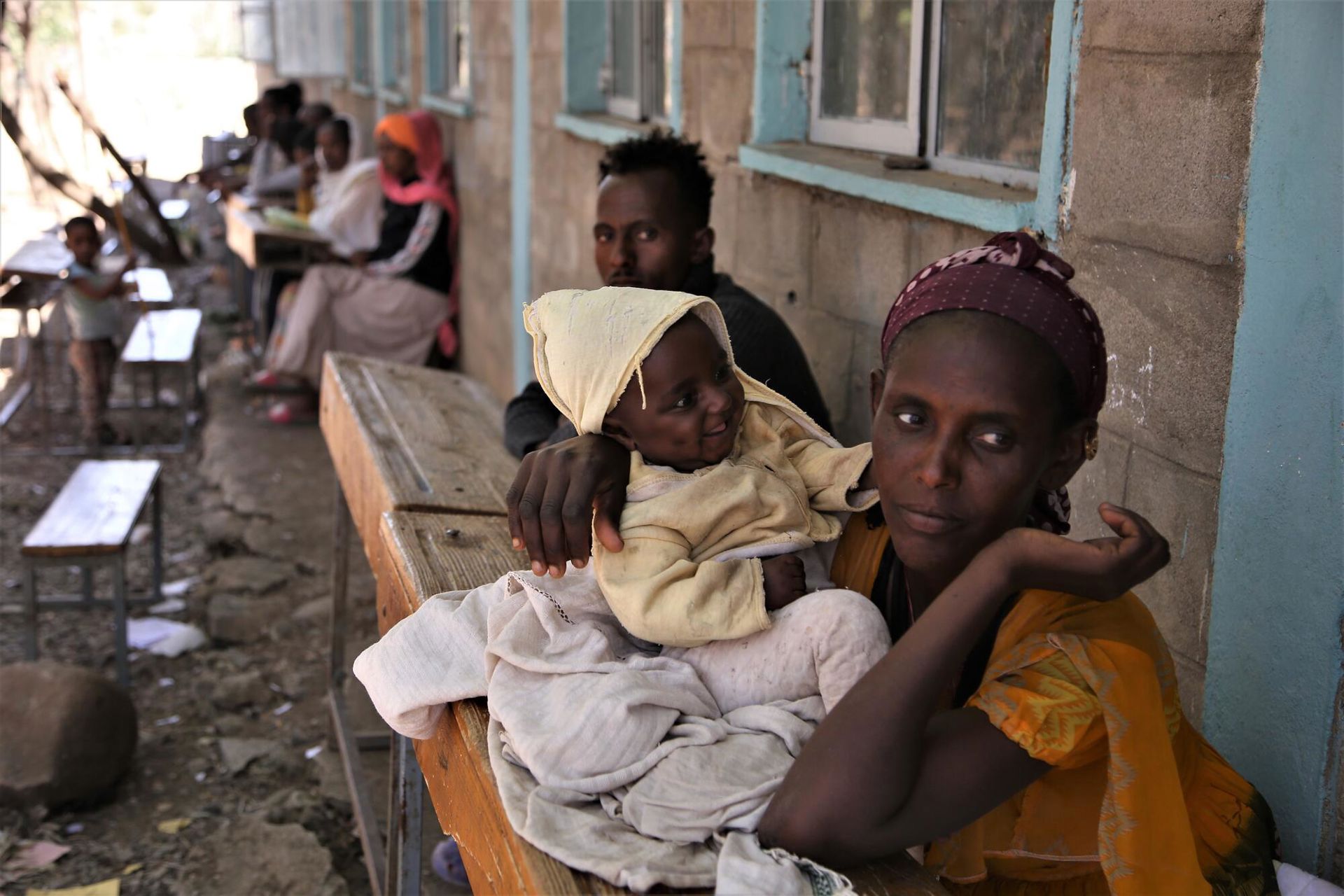In recent weeks, tens of thousands of displaced people have arrived in cities in the conflict-hit region of Tigray, northern Ethiopia. They join others who arrived earlier and are staying in schools and empty buildings, in poor conditions and without basic services. Many have already been displaced multiple times since November.
Today, primary and secondary schools in towns and cities across the entire Tigray region, such as Adwa, Axum and Shire, are the epicentre of a huge displacement crisis, numbering hundreds of thousands – although no one knows the real number. In recent weeks, this crisis has taken on a desperate shape, with tens of thousands of people moving into cities in search of safety and humanitarian assistance as resources become depleted in host communities and the more remote rural areas.
Continuous displacement
Ken Alew Gebrekristos, 38, a metal welder from the central Tigrayan town of Edaga Arbi, about 50 km southeast of Adwa, arrived here in the second week of March. During the day, his wife and two older children go into town in search of aid, while he remains in the school, listening out for any new information that could improve their situation. “So far we have been given some injera (flatbreads) and T-shirts,” he says. During the night, they sleep on the hard floor of one of the classrooms.
Adwa is just the most recent destination for this family of six. In the early days of the crisis, they saw their home town filling up with people fleeing violence elsewhere and later witnessed it being attacked by Eritrean soldiers.
In November, the family was forced to flee into the hills, taking nothing but their clothes and carrying the youngest children on their shoulders. On the way, they passed dead bodies on the ground. They kept on walking, asking locals along the way for shelter and food.
“We fetched water from the river to drink,” says Ken. “Some days we ate nothing. One girl who was displaced with us gave birth, with no doctor around. We had just a bedsheet to offer them, so we made a fire to warm up the baby.”
They attempted to return to their destroyed home, but the feeling of insecurity deterred them from staying there.
With tears in his eyes and his voice breaking, Ken says: “Now I have no plans, no idea what my immediate future looks like. I can’t go back home – how could I go back without guarantees? I feel safer here surrounded by other people.”
Informal settlements without basic services
“We have seen displacement happening since the beginning of the crisis, but people were not displacing in such big numbers and those who had to leave their houses were often supported by host communities, staying mostly in the houses of relatives or of people they knew and sharing resources with them,” says Esperanza Santos, MSF emergency coordinator in Tigray.
“Recently this has changed and we are seeing a bigger influx of people, especially in Shire, Adwa and Axum,” says Esperanza. “Most are settling in informal sites that don’t have the capacity to host this number of people and that lack services for them. It is an extremely concerning situation because we are not seeing an adequate response from the humanitarian community to address people’s need for water, sanitation, food or medical services.”
-------------------------------
MSF teams are rehabilitating a number of health facilities across the Tigray region and providing them with drugs and other medical supplies, as well as providing hands-on medical support in emergency rooms, maternity wards and outpatient departments. MSF teams are also running mobile clinics in rural towns and villages where the health system is not functioning, and in informal sites where displaced people are staying. However, there are still rural areas in Tigray that neither MSF, nor any other organisation, has been able to reach; MSF can only assume that people living in these areas are also without access to healthcare. In response to this wave of newly arrived internally displaced people, MSF is also focusing on water and sanitation activities in some of the main towns.


